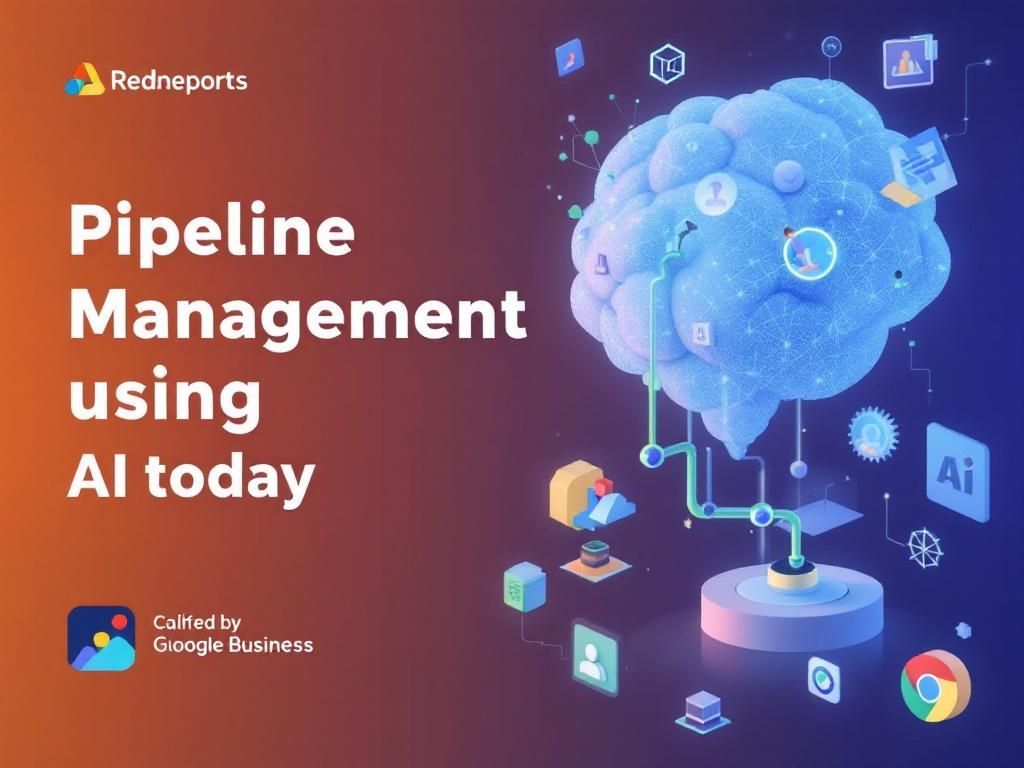In today’s fast-paced business environment, effective pipeline management is crucial for maximizing efficiency and driving growth. With the rise of artificial intelligence (AI), companies are discovering innovative ways to enhance their pipeline processes. From lead generation to customer retention, AI can automate and optimize various aspects of pipeline management, providing organizations with valuable insights and freeing up resources for more strategic initiatives.
Understanding Pipeline Management
Pipeline management involves overseeing the various stages of a sales cycle—from initial contact with potential leads to closing deals. It focuses on tracking prospects and ensuring that each step is optimized to convert leads into loyal customers. Key components of pipeline management include:
- Lead generation
- Lead nurturing
- Sales forecasting
- Performance tracking
The Importance of Effective Pipeline Management
Maintaining a well-organized pipeline is essential for several reasons:
- Increased Efficiency: Streamlined processes lead to faster decision-making and shorter sales cycles.
- Improved Forecasting: Accurate data helps predict future sales, enabling better resource allocation and planning.
- Enhanced Customer Relationships: Personalized interactions based on data insights foster stronger connections with customers.
How AI Transforms Pipeline Management
Integrating AI into pipeline management can lead to significant improvements. Here are several ways AI can enhance your processes:
1. Lead Scoring
AI algorithms can analyze historical data to identify which leads are most likely to convert. By scoring leads based on their behavior, demographics, and engagement level, sales teams can prioritize their efforts effectively.
| Criteria | Score Weight |
|---|---|
| Engagement Level | 40% |
| Demographics | 30% |
| Past Purchase Behavior | 30% |
2. Predictive Analytics
AI-driven predictive analytics can help organizations forecast sales trends and customer behavior. By analyzing vast amounts of data, AI can identify patterns that human analysts might miss, leading to more accurate predictions and smarter decision-making.
3. Automated Communication
AI-powered chatbots and automated email systems can manage initial communications with leads, providing timely responses and nurturing relationships without requiring constant human oversight.
Implementing AI in Pipeline Management
To effectively incorporate AI into your pipeline management, follow these steps:
Step 1: Identify Objectives
Define the specific goals you want to achieve with AI integration, such as improving lead conversion rates or enhancing customer engagement.
Step 2: Choose the Right Tools
Select AI tools that align with your objectives. Some popular options include:
- Customer Relationship Management (CRM) systems with AI capabilities
- Lead generation software
- Analytics platforms
Step 3: Data Collection and Integration
Ensure you have access to high-quality data from various touchpoints, such as website interactions, social media engagement, and previous sales data.
Step 4: Train the AI Models
Feed the AI algorithms with historical data to train them for accurate predictions and analyses. This phase is crucial for achieving reliable results.
Challenges and Considerations
While AI presents numerous advantages for pipeline management, there are challenges to consider:
1. Data Privacy
With the increasing emphasis on data privacy regulations, ensure that your data collection methods comply with laws such as GDPR and CCPA.
2. Integration Complexity
Integrating AI tools with existing systems can be complex. Choose solutions that offer seamless integration to minimize disruption.
3. Change Management
Staff may be hesitant to adopt AI technologies. Providing training and demonstrating the benefits can help ease the transition.
Success Stories
Several companies have successfully integrated AI into their pipeline management processes, reaping impressive results:
Case Study 1: TechCorp
TechCorp implemented an AI-driven CRM platform that enhanced lead scoring and predictive analytics. Within six months, they experienced a 30% increase in sales conversions.
Case Study 2: Retail Innovators
Retail Innovators utilized AI chatbots to manage customer inquiries, significantly reducing response times and improving customer satisfaction rates by 25%.
The Future of Pipeline Management with AI
The future of pipeline management is undoubtedly intertwined with the advancements in AI technology. As AI becomes more sophisticated, its capabilities will continue to evolve, offering even more powerful tools for businesses. Potential developments include:
- Enhanced natural language processing for better customer interactions
- Greater automation in lead nurturing and follow-ups
- Integration of AI with emerging technologies like IoT and blockchain
By staying ahead of the curve and leveraging these innovations, businesses can transform their pipeline management strategies, ensuring sustained growth and competitiveness in an ever-changing market.
Conclusion
Harnessing the power of AI for pipeline management can revolutionize how businesses operate. From improving lead scoring to automating communication, AI offers a plethora of opportunities to enhance efficiency and effectiveness. By carefully considering implementation strategies and overcoming challenges, organizations can position themselves for success in an increasingly competitive landscape.
FAQ
What is pipeline management in sales?
Pipeline management refers to the process of overseeing and optimizing the various stages of the sales process to increase efficiency and conversion rates.
How can AI improve pipeline management?
AI can enhance pipeline management by providing predictive analytics, automating repetitive tasks, identifying potential leads, and offering personalized insights to sales teams.
What are the key benefits of using AI for pipeline management?
The key benefits include increased accuracy in forecasting, reduced manual workload, improved lead scoring, and enhanced decision-making capabilities.
Is AI pipeline management suitable for small businesses?
Yes, AI pipeline management tools can be tailored to suit businesses of all sizes, including small businesses, by providing scalable solutions that fit their specific needs.
What features should I look for in an AI pipeline management tool?
Look for features such as automation capabilities, integration with existing CRM systems, data analytics, user-friendly interfaces, and customizable reporting.
How can I get started with AI for pipeline management?
You can start by researching AI pipeline management tools, evaluating your current sales processes, and considering a trial or demo of the software to see how it fits your needs.




